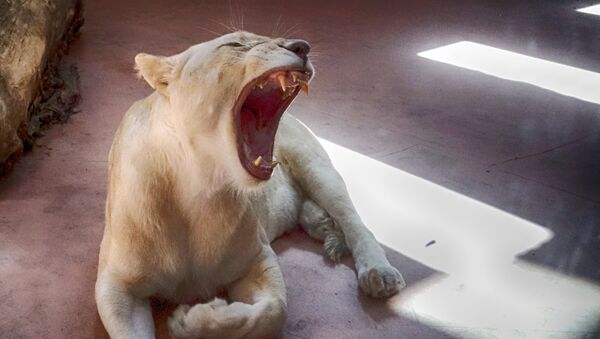Am I boring you? Are you tired? Oops, is my yawn catching?
Or are you just cooling your big ol' overheating brain?
If you said "sorry, it’s just that my brain's too warm," you could be right. At least, that’s the direction that results from a new study by researchers at the State University of New York (SUNY) at Oneonta, and published online October 4 by Biology Letters, indicate.
The study authors reviewed publicly available YouTube videos of different types of animals yawning, because apparently that is in some lucky people’s job descriptions. STAT detailed some of the findings: researchers noted that mice yawn for 0.8 seconds, cats for 1.97 seconds, dogs for 2.4 seconds and people for, on average, 6.5. (They also looked at other primates, elephants, horses and other animals whose brains had been weighed and measured.
Brains use a lot of energy, and current research on the mysterious yawn suggests that it’s a cooling mechanism for our hardworking noggins. SUNY researchers introduced the hypothesis that animals with larger, more complex brains would yawn longer, and the evidence supports their conclusions. It turns out that animals with heavier brains, containing more cortical neurons — the cells of the biggest part of your brain, the ones that handle most of the big-deal stuff like thinking and voluntary movement — yawn for longer than those with lighter brains and fewer of those neurons. The correlation is striking, they found, and is related only to the size of the brain, not the size of the animal or its jaws.
"We were just really blown out of the water," Andrew Gallup, one of the researchers with the Department of Psychology at SUNY Oneonta, told the Atlantic. “It’s such a strong predictor.”
Gallup and fellow scientists have not settled the question of why we yawn. There are still theories that it is some kind of marker of empathy, as yawns are socially catching. But whatever the point of yawning may be, Gallup says he has pinned down a real consequence. "Whether yawning functions specifically to cool the brain can still be debated, but there is no debate on whether yawning has thermoregulatory consequences,” he told STAT.
But whatever the point of yawning may be, Gallup says he has pinned down a real consequence. "Whether yawning functions specifically to cool the brain can still be debated, but there is no debate on whether yawning has thermoregulatory consequences," he told STAT.





